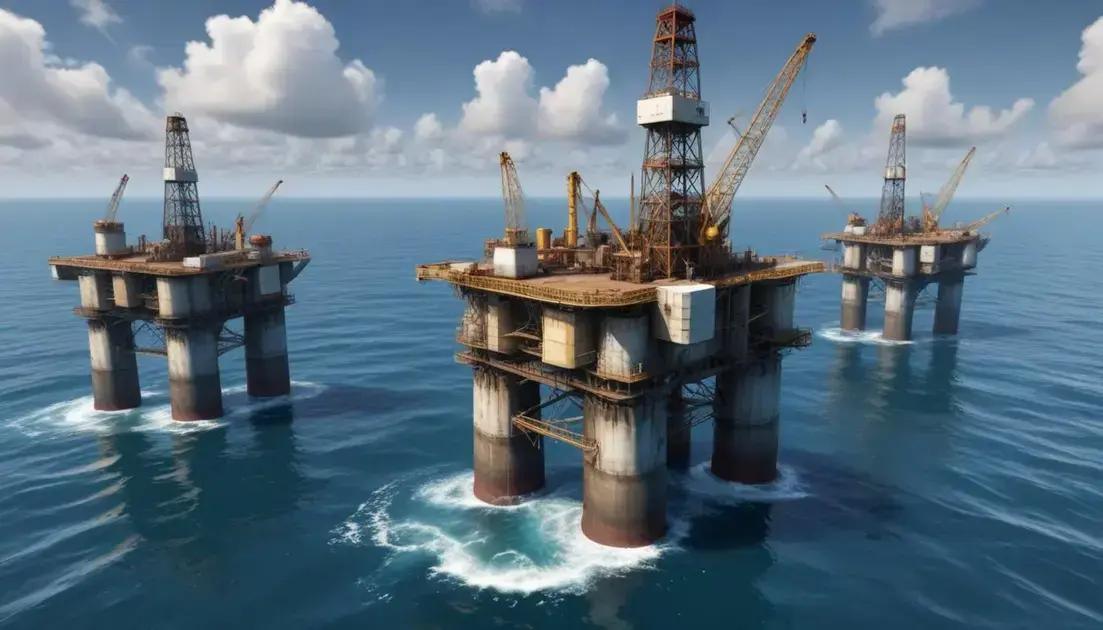
Brazilian Pre-Salt: The Largest Oil Discovery of the 21st Century
The Brazilian Pre-Salt discovery has significantly impacted the country’s oil industry, positioning Brazil as a key player in global production. This region, rich in oil reserves, presents both opportunities for economic growth and challenges regarding national sovereignty and environmental concerns. As Brazil continues to explore and extract these resources, it must carefully balance investment with sustainability to ensure long-term benefits for its citizens and the environment.
In 2006, Petrobras made a Brazilian Pre-Salt discovery that transformed the country into a significant oil player. This has led to lively debates…
Introduction to Brazilian Pre-Salt
The Brazilian Pre-Salt region is a treasure trove of oil lying deep beneath the ocean floor. Discovered in 2006 by Petrobras, these vast reserves have changed Brazil’s position in the global oil market. Before this, Brazil was not known as a major oil player.
Located offshore, the Pre-Salt layer is around 5,000 to 7,000 meters deep. It consists of layers of salt that have trapped significant amounts of oil. This discovery marked a new era for Brazil, making it one of the largest producers of oil in the world.
As companies invest in the technology needed to drill deep into the oceans, the potential for growth is enormous. This oil can energize the economy and create jobs across various sectors.
However, the discovery has also sparked discussions. Many worry about the environmental impact of drilling in such sensitive areas. Moreover, questions of sovereignty are central to the debate, as Brazil navigates its future in oil production.
The Discovery and Its Impact
The discovery of the Brazilian Pre-Salt reserves changed everything for Brazil. It placed the country on the map as a major oil producer. The Pre-Salt region is rich in oil, holding billions of barrels beneath thick layers of salt. This discovery is not just about the oil itself; it’s about what it means for the economy.
Since the discovery, investments have surged. Companies are eager to explore these depths, which create jobs and boost local economies. This is good for Brazil’s growth. More jobs mean more spending in communities, which helps everyone.
But it’s not all good news. The drive to extract oil raises environmental concerns. Drilling comes with risks, especially for the ocean ecosystem. Many worry about potential spills and marine life impacts.
The debates around these discoveries continue. Some argue that the oil wealth should be managed carefully to benefit everyone. Others emphasize the importance of profit and growth. Finding a balance is key as Brazil navigates its new role in the global oil market.
Debates on National Sovereignty
The debates on national sovereignty regarding the Brazilian Pre-Salt reserves are quite intense. As Brazil discovers rich oil resources, questions arise about who truly owns this wealth. Many believe that oil should benefit the entire country, not just a few companies.
Some argue that foreign companies should not control Brazil’s oil fields. They worry that this could lead to exploitation. The fear is that these companies might prioritize profits over local needs. Can Brazil keep control of its natural resources? That’s the critical question.
On the other hand, some believe foreign investment is necessary. They argue that it brings in technology and expertise. This can help Brazil maximize its oil production. But this raises other concerns regarding profits flowing out of the country instead of staying local.
The government has to balance these interests. Many citizens want stronger regulations to ensure local benefits. This could include job creation and revenue for public services. It’s a complex debate that touches on economic, social, and environmental themes.
Future of Oil Exploration in Brazil
The future of oil exploration in Brazil looks promising but uncertain. With the discovery of the Brazilian Pre-Salt, many opportunities arise. New technologies are coming into play, helping to extract oil safely and efficiently. This is crucial for meeting growing energy demands.
Many companies are investing in advanced drilling techniques. These methods allow them to reach deeper oil reserves. This helps Brazil maintain its status as a major oil producer in the world market. However, balancing growth and environmental safety is vital.
As exploration continues, regulations are also evolving. The government needs to ensure that oil extraction is done responsibly. This means protecting marine life and coastal areas while maximizing economic benefits.
Collaboration between local and international companies will be essential. Sharing knowledge can lead to innovations that enhance exploration efforts. Moreover, local communities should be involved in discussions about oil projects to ensure they benefit.
Ultimately, the future of oil exploration in Brazil is a blend of opportunity and responsibility. Brazil must navigate this path wisely, aiming for sustainable development while capitalizing on its rich oil resources.
Conclusion
In summary, the Brazilian Pre-Salt discovery has significantly transformed the country’s role in the global oil market. While it brings many opportunities for growth and investment, it also raises important questions about national sovereignty and environmental safety. Brazil must find a balance between maximizing oil production and protecting its natural resources.
As we look to the future, collaboration between local and international companies will be vital. By working together, they can develop new technologies that make oil exploration safer and more efficient. Involving local communities in these discussions is also crucial to ensure everyone benefits.
Ultimately, the path forward for oil exploration in Brazil requires careful planning and thoughtful decision-making. With the right approach, Brazil can harness its oil wealth while safeguarding its environment for future generations.


